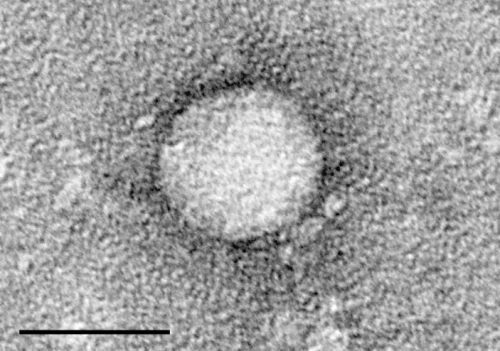Hepatitis drug increases antibiotic potency, limits antibiotic resistance

An FDA-approved drug for hepatitis C can increase bacterial sensitivity to antibiotics and reduce the likelihood of antibiotic resistance, according to a new study led by New York University researchers published in Cell Chemical Biology. The drug called telaprevir works by blocking the function of chaperones—important proteins that fold other proteins in the cell—in bacteria.
"Telaprevir is the first previously clinically approved compound that has been shown to inhibit chaperone function in bacteria," said Tania Lupoli, assistant professor of chemistry at NYU and the study's senior author. "Our research marks a vital step in developing small molecule chaperone inhibitors that can be used in bacteria to increase the power of antibiotics and slow down the evolution of antibiotic resistance."
Chaperones exist in almost every cell in every organism, from single-cell bacteria to humans. Due to their critical role in folding other proteins—and what happens when proteins misfold, which can lead to toxicity in the cell—chaperones are the targets of ongoing drug discovery research, but researchers have struggled to find small molecules that can specifically target or bind to chaperones.
In this study, the researchers sought to identify small molecules that could turn off the function of chaperones in disease-causing bacteria. Focusing on Mycobacterium tuberculosis, the microbe that causes tuberculosis, they screened roughly 25,000 compounds—including 1,300 approved drugs—to identify small molecules that inhibit chaperones in mycobacteria.
They landed upon an antiviral drug called telaprevir, which was approved by the FDA to treat hepatitis C. In a series of experiments using model mycobacteria in the lab, they demonstrated that telaprevir binds to mycobacterial chaperones and blocks their ability to fold proteins. This made the mycobacteria more sensitive to antibiotics, including streptomycin, a commonly prescribed tuberculosis drug.
Chaperones can also stabilize the proteins in the cell that cause antibiotic resistance, so using telaprevir to block chaperone function lowered mycobacteria's resistance against the first-line tuberculosis drug rifampicin. Reducing antibiotic resistance is a major public health priority in the U.S. and around the world, as an increasing number of infections—including tuberculosis—are growing more difficult to treat as antibiotics become less effective.
"In the future, we envision that small molecule chaperone inhibitors could be used in combination with antibiotics to enhance antibiotic potency and lower resistance," said Lupoli.
While the researchers were excited to identify telaprevir as a chaperone inhibitor, they are continuing to explore hundreds of telaprevir analogs—compounds that are similar in molecular structure—to determine if others bind more tightly to chaperones, a key factor for moving the research into animal or clinical studies. Future work will also explore how to target chaperone inhibitors to only shut down certain chaperones—for instance, blocking chaperones in bacteria, but not human cells.
"Our work contributes to a small but growing list of small molecules that block the function of chaperones and provides a promising avenue for ongoing study of the role that telaprevir and its analogs can play when administered with antibiotics," said Lupoli.
Additional study authors include Jordan Hosfelt, Aweon Richards, Meng Zheng, Brock Nelson, and Amy Yang of NYU's Department of Chemistry; Carolina Adura and Fraser Glickman of Rockefeller University; Allison Fay of Sloan Kettering Institute; and William Resager and Beatrix Ueberheide of NYU Grossman School of Medicine.
More information: Tania J. Lupoli, An Allosteric Inhibitor of Bacterial Hsp70 Chaperone Potentiates Antibiotics and Mitigates Resistance, Cell Chemical Biology (2021). DOI: 10.1016/j.chembiol.2021.11.004. www.cell.com/cell-chemical-bio … 2451-9456(21)00481-5
Journal information: Cell Chemical Biology
Provided by New York University





















